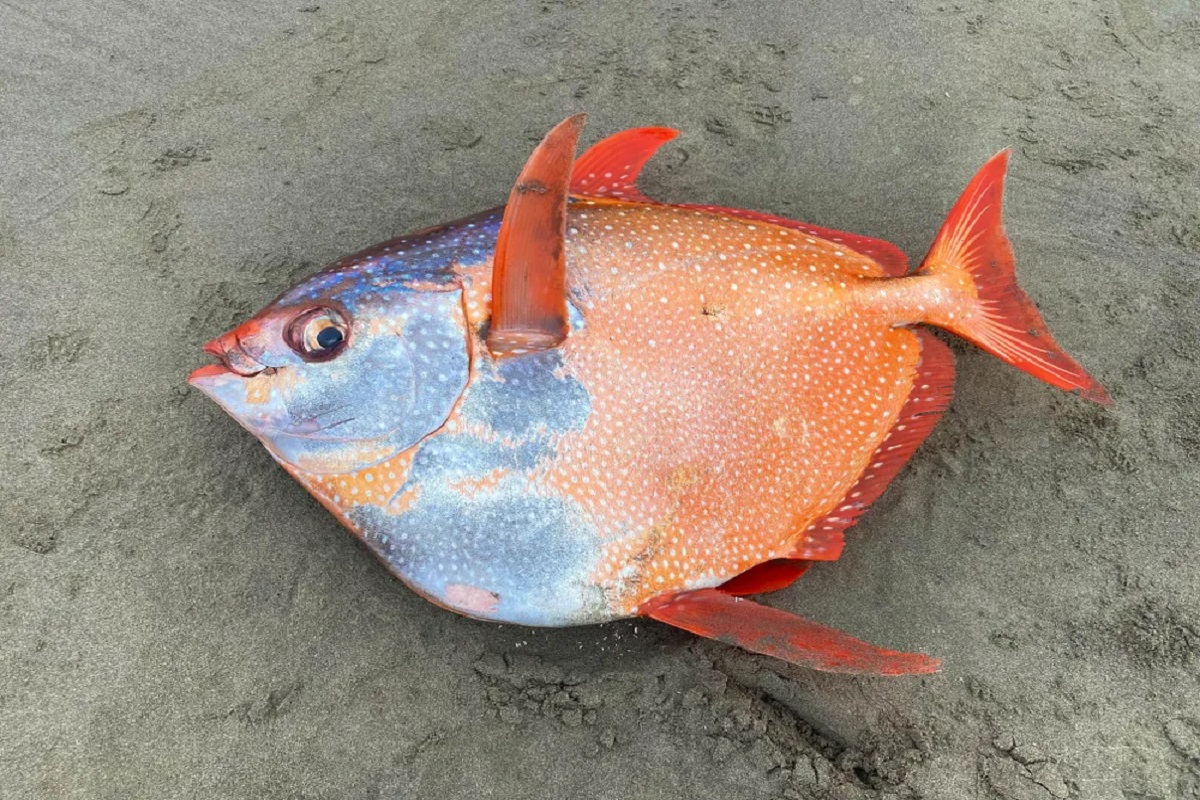Last week, an unusual fish washed up on a beach in Seaside, Oregon. It was a 100-pound fish shaped like a manhole cover, with shiny silver and coral-orange scales. The fish is called an opah or moonfish, and it is not often seen so far north. The local Seaside Aquarium was alerted to the fish by people at the beach.

Opah are striking fish that usually live in warm waters, like off the coasts of California and Hawaii. They can grow to be more than six feet long and weigh over 600 pounds. However, it is rare to find them in Oregon waters. In 2009, a fisherman caught a 97-pound opah near Seaside.
Heidi Dewar, a fisheries biologist with the National Oceanic and Atmospheric Administration (NOAA), says finding a 100-pound opah off the Oregon coast is unusual. The fish’s presence could be related to rising ocean temperatures, as some marine organisms are moving northward due to warmer waters.
Before the opah washed up, the Pacific Northwest experienced a severe heatwave that caused the death of many marine organisms. The heatwave was attributed to climate change. While no direct evidence links the fish stranding to the heatwave, rising ocean temperatures could have influenced its appearance.
The opah’s biology is not well understood, including its maximum age. The Seaside Aquarium preserved the fish’s body and plans to allow a school group to dissect it in the coming academic year. This will provide an opportunity for students to learn more about these unique fish and have a hands-on experience they may never encounter again.
Overall, the opah’s presence in Seaside, Oregon, is intriguing and offers a chance to gather more information about this beautiful fish.
Leave a Reply